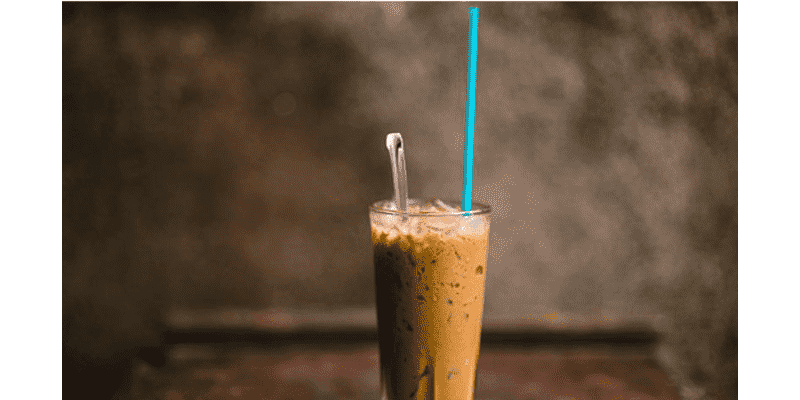Advertisement
Coffee soda and energy drinks- Is Caffeine terrible for kids: Finding the truth
Nov 02, 2023 By Madison Evans
Caffeine is one of the most hyped ingredients for instant energy consumption. It is known for delivering alertness, getting rid of sleepiness, and enhancing the ability to concentrate on whatever they do.
On the other hand, we have another group of people who say that consuming Caffeine might cause severe side effects on children's health, causing them anxiety, insomnia, heart disease, and whatnot. So, is it true? A substance that's so beneficial for an individual can harm others based on age difference only. If yes, why does this happen? To get a satisfactory answer, we will shed light upon all the relevant facts and figures to help you decide better. So, without any further discussion, let us jump into the content.
Learning about Coffee, soda, and energy drinks- Is Caffeine terrible for kids?

Adenosine Receptors
The Adenosine Receptor: Word might seem alien to some people. For those who do not know about the substance, it is a natural compound that keeps producing inside your brain all day. That means, no matter if you are studying, dancing, praying, or doing any other activity, the Adenosine receptor will keep on producing inside your brain and accumulating throughout the day. It is the prime component that is responsible for your brain to develop a sleepy feeling.
Nevertheless, Caffeine is the prime substance that targets the Adenosine development cycle by locking the soothing effects. As a result, the person experiences a less sleepy feeling than usual.
Now, as kids are more sensitive mentally and physically, Caffeine, even in smaller amounts, can disturb their sleep cycle, causing them to feel sleepy during unusual times instead of bedtime. The case gets even more complex if the kids consume these drinks in abundance. As a result, kids might find it hard to keep their brains awake in their time of need.
Sugar
Sugar is one of the most harmful substances you can enter in your body. One indirect cause of Soda drinks, Caffeine, and energy drinks that kids must not consume is being rich in Sugar in addition to Caffeine.
And Sugar is called white harmful thing for a reason. Children who are extra sensitive to the environment might not possess the ability to withstand and digest such a large number of … entering into the body, causing them to suffer from various health side effects such as mild heart attack or type 2 diabetes.
At the same time, kids who consume such things frequently consume about ten teaspoons of Sugar daily and might develop less resistance toward excessive insulin levels than adults. As a result, the body does not respond to brain commands. Some studies even suggest that children who are patients with hypertension and hyper-anxiety consume something out of fizzy drinks, energy drinks, or caffeine-rich beverages daily.
Dehydration 
Dehydration refers to a situation where the body loses its water storage, causing one to feel nauseous, tired, and sleepy, even if they have had enough food and water. One of the significant causes for one to lose more than the usual amount of water retention is Caffeine. It thinner the urine and enhances the flexibility of urinary nerves, causing the child to lose excessive amounts of water from the body and get dehydrated. As the children are unaware of this fact, they would not be able to detect the root problem, serving as the basis for long-term diseases.
Dependence upon the substance
Addiction means restricting and depending on an individual over a specific set of things or activities without which they think that they can do nothing. As caffeine and energy drinks provide the body with instant yet temporary energy, your children might start depending on them to generate enough power for their not-so-necessary activities, such as playing. The case gets highly complex as you lower the age of the kid you put under consideration.
Disruption in Neurological growth

The mental growth of kids starts from the next second they are born and keeps evolving till the end of adolescence. However, certain factors can either boost the development or disrupt it. Unfortunately, energy drinks and Caffeine-involved products are standing on the opposing side.
As the enhancement of brain function and formation of neurological structure is a rapid and ever-going process in a child's body, they are more vulnerable to excessive caffeine intake.
At the same time, when children start to rely on Caffeine products and energy drinks as a shortcut to get enough energy for their daily activities, the brain function starts to get slow. That means the nerves are not pressurized by the intuitive cells to command the generation of energy. As a result, the glycolysis and Krebs cycle (Also known as the Citric Acid Cycle) gets slower down, affecting your child's mental health and physical health altogether.
Does Caffeine harm children
Now that we are done discussing the matter with the help of facts and figures, it's time to answer the question, "Does Caffeine or products high in Caffeine harm children?" Well, the simple answer to this question is "Yes," it does.
A child's body is more vulnerable and can adapt to uncertain changes in the environment instantly. The same is why excessive use of Caffeine can disrupt the neurological growth of your child, make them less innovative, cause dehydration in the body due to excessive water loss, and even decrease the Adenosine Receptors. In addition, children might also get addicted and dependent on these things, causing low cognitive functions in the long run. The same is why doctors and physicians advise not to let children intake Caffeine. However, taking such things once in a blue moon is bearable.
Conclusion
On the bottom line, Caffeine and energy drinks are popular options in adult beverages. However, does this cause any harm to children? To give a satisfactory answer to this question, we have formed the guide above for your help.







